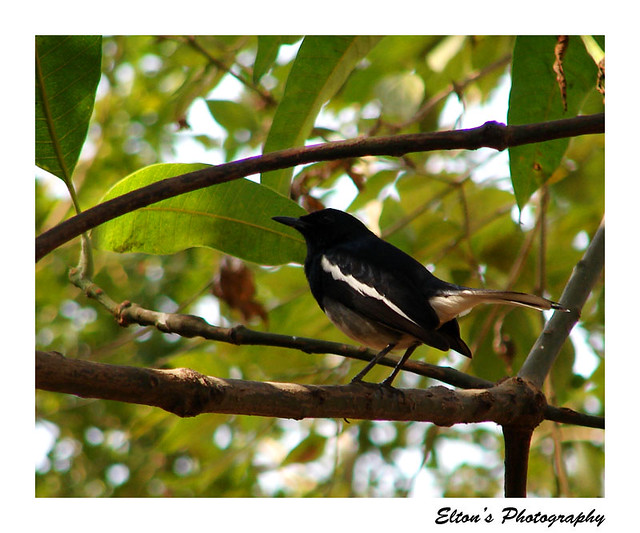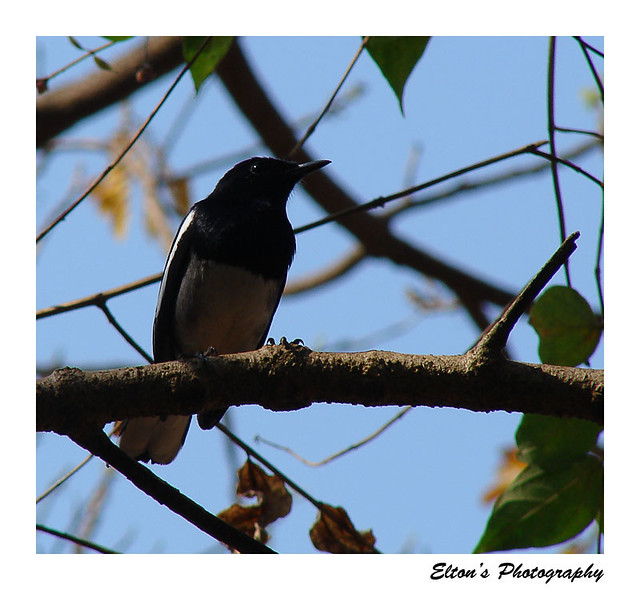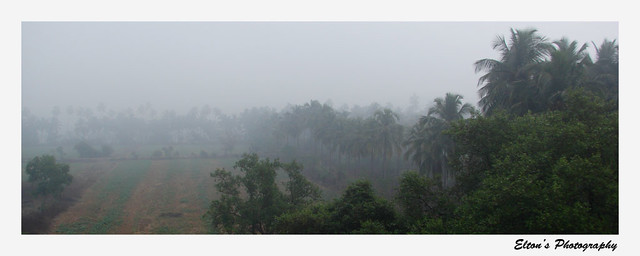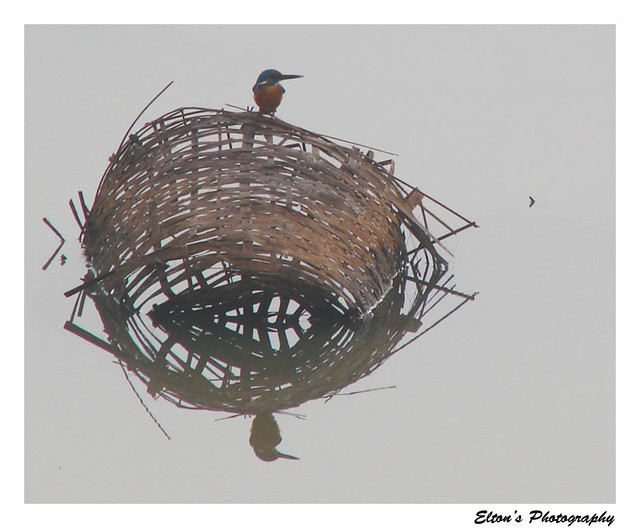The two sides of an affair
Caught the performances of Cavalleria Rusticana and Pagliacci at the Jamshed Bhabha Theatre at NCPA last evening, thanks to The Wife performing in them. First up, Cavalleria Rusticana...
Cavalleria rusticana (Rustic Chivalry, Italian pronunciation: [ka.va.lːeˌɾiːa ɾus.tiˈkaːna]) is an opera in one act by Pietro Mascagni to an Italian libretto by Giovanni Targioni-Tozzetti and Guido Menasci, adapted from a play written by Giovanni Verga based on his short story. Considered one of the classic verismo operas, it premiered on May 17, 1890 at the Teatro Costanzi in Rome. Since 1893, it has often been performed in a so-called Cav/Pag double-bill with Pagliacci by Ruggero Leoncavallo.
-- Wikipedia
This opera revolves around an affair between Turiddu and Lola (Marianna Vinci). Turiddu and Lola were old lovers until Turiddu goes off and joins the army. While they pledged their 'undying' love for each other with the promise to wait, Lola in the mean time gets married to Alfio (Gevorg Hakobyan) (no explanation given, or I missed it in the surtitles). Turiddo returns, finds out about the marriage, gets himself a new girlfriend, Santuzza, to quell the burning passion / rage. Its not long before Turiddo and Lola start seeing each other behind the backs of their 'better half's'.
The stars of this opera are Elena Bocharova as Santuzza and Giancarlo Monsalve as Turiddu (I hope I got the names right, couldn't make out the faces too well with my old glasses and being in the cheap seats). Giancarlo's swagger plays just right on your nerves, as he emotionally blackmails Santuzza while openly mooning over Lola. You really feel like he deserves a swift kick in the nuts. Elena as the poor soul Santuzza comes across quite strongly as being all-forgiving as her character is meant to portray. The urban crowd might root for her bobbitizing Turiddu, but the fans of the saas-bahu serials might connect with the drama being portrayed.
Turiddu's moment of 'redemption' comes when its time to pay the piper and face Alfio. Sensing his 'the end' perhaps, he asks his mother, Lucia (Chiara Fracasso) to take care of Santuzza (not before he tries to pony out of the impending showdown with Alfio, where he tries to emo-blackmail Alfio too, playing the Santuzza card).
To be honest, I wouldn't know if they pronounced the words all wrong or if their notes were all over the place at the wrong (or right) places, but they both do great jobs of their roles. Their connect with the audience was excellent. Now, on to Pagliacci...
Pagliacci (Italian pronunciation: [paʎˈʎattʃi]; Players, or Clowns), sometimes incorrectly rendered with a definite article as I Pagliacci, is an opera consisting of a prologue and two acts written and composed by Ruggero Leoncavallo. It recounts the tragedy of a jealous husband in a commedia dell'arte troupe. It is the only opera of Leoncavallo that is still widely staged.
Pagliacci premiered at the Teatro Dal Verme in Milan on May 21, 1892, conducted by Arturo Toscanini with Adelina Stehle as Nedda, Fiorello Giraud as Canio, Victor Maurel as Tonio, and Mario Ancona as Silvio. Nellie Melba played Nedda in London in 1892, soon after its Italian premiere, and in New York in 1893.
Cavalleria rusticana (Rustic Chivalry, Italian pronunciation: [ka.va.lːeˌɾiːa ɾus.tiˈkaːna]) is an opera in one act by Pietro Mascagni to an Italian libretto by Giovanni Targioni-Tozzetti and Guido Menasci, adapted from a play written by Giovanni Verga based on his short story. Considered one of the classic verismo operas, it premiered on May 17, 1890 at the Teatro Costanzi in Rome. Since 1893, it has often been performed in a so-called Cav/Pag double-bill with Pagliacci by Ruggero Leoncavallo.
-- Wikipedia
This opera revolves around an affair between Turiddu and Lola (Marianna Vinci). Turiddu and Lola were old lovers until Turiddu goes off and joins the army. While they pledged their 'undying' love for each other with the promise to wait, Lola in the mean time gets married to Alfio (Gevorg Hakobyan) (no explanation given, or I missed it in the surtitles). Turiddo returns, finds out about the marriage, gets himself a new girlfriend, Santuzza, to quell the burning passion / rage. Its not long before Turiddo and Lola start seeing each other behind the backs of their 'better half's'.
The stars of this opera are Elena Bocharova as Santuzza and Giancarlo Monsalve as Turiddu (I hope I got the names right, couldn't make out the faces too well with my old glasses and being in the cheap seats). Giancarlo's swagger plays just right on your nerves, as he emotionally blackmails Santuzza while openly mooning over Lola. You really feel like he deserves a swift kick in the nuts. Elena as the poor soul Santuzza comes across quite strongly as being all-forgiving as her character is meant to portray. The urban crowd might root for her bobbitizing Turiddu, but the fans of the saas-bahu serials might connect with the drama being portrayed.
Turiddu's moment of 'redemption' comes when its time to pay the piper and face Alfio. Sensing his 'the end' perhaps, he asks his mother, Lucia (Chiara Fracasso) to take care of Santuzza (not before he tries to pony out of the impending showdown with Alfio, where he tries to emo-blackmail Alfio too, playing the Santuzza card).
To be honest, I wouldn't know if they pronounced the words all wrong or if their notes were all over the place at the wrong (or right) places, but they both do great jobs of their roles. Their connect with the audience was excellent. Now, on to Pagliacci...
Pagliacci (Italian pronunciation: [paʎˈʎattʃi]; Players, or Clowns), sometimes incorrectly rendered with a definite article as I Pagliacci, is an opera consisting of a prologue and two acts written and composed by Ruggero Leoncavallo. It recounts the tragedy of a jealous husband in a commedia dell'arte troupe. It is the only opera of Leoncavallo that is still widely staged.
Pagliacci premiered at the Teatro Dal Verme in Milan on May 21, 1892, conducted by Arturo Toscanini with Adelina Stehle as Nedda, Fiorello Giraud as Canio, Victor Maurel as Tonio, and Mario Ancona as Silvio. Nellie Melba played Nedda in London in 1892, soon after its Italian premiere, and in New York in 1893.
-- Wikipedia
If Cavalleria rusticana spoke of the male side of the affair, Pagliacci covers the female side and the husband (who are supporting characters in Cavalleria rusticana). There are a couple of interesting things worth mentioning in this opera, namely the announcement made as part of the prologue, about how the actors have feelings too and that what they are about to see is about real people.
Pagliacci sets an interesting concept, contrary to art imitating real life or vice-versa, both are different concepts and are hence treated differently. He explains how if in his performance as Pagliacci, he finds out his wife is having an affair, there would be quips and jokes made about it, but if it happened in real life, he would not be able to control his rage.
The opera follows a play within a play (The Wife and her research told me this, but I didn't get the flow until I saw it being performed). Francesco Anile does a good job of Canio. His portrayal of the tragic clown stereotype, his trying to understand where he fell short that his wife had to have an affair works well as it serves as a backdrop to his rage. On the other hand, Sabina Cvilak as Nedda portrays her frustration of the wandering life quite well to Javier Arrey's Silvio who works the 'bechara' angle when Nedda's character has second thoughts about the affair.
Interestingly, right before her scene of meeting Silvio in the opera, Nedda sings about birds and how they are free to go from one place to another (the aria is called Stridono lassù. Lyrics and translation are here) is actually a good reflection of her life in the traveling troupe. While both seem to talk of traveling to different lands, she views the bird's flight as freedom, whereas her own travels as a form of captivity. In the end, she views her settling down in one place as her way to freedom and correspondingly takes up Silvio on his offer to leave Canio and the traveling troupe and settle down with him.
There's also excellent performances by Silvio Zanon as the deformed Tanio and by Filippo Adami as Arlecchino (or Harlequin as per the english translation; not to be confused with that annoying batman villain) Filippo's Arlecchino seems like a blend of a mime and a clown and is easily the most energetic of the three clowns that appear on stage.
A couple of interesting inclusions in Pagliacci is the use of a screen on stage which depicting the audience entering the performance venue and vignettes of the performers preparing for their on-stage parts. This little addition completes the effect of play-in-play and includes the actually audience onto the stage (since the opera itself is performed in front of an on-stage audience). Pagliacci revolves around a traveling troupe and so it features a scene with acrobats, gymnasts and the showgirls. A surprise addition was the presence of the good old Mallakhamb from India, with two guys performing on the 'pole or fixed mallakhamb' and two girls performing the 'rope mallakhamb'. This was an unexpected treat as you usually only get to see this around the Shivaji Park area where there's a practice place kept for this. I don't know if this was a conscious effort as part of the performance to include a local art into the production, but it was a good touch nonetheless.
The Wife featured in both operas, more prominently in Cavalleria rusticana where she appears as Lola's friend and also sings a couple of lines upfront :-) Bravo !
A couple of interesting inclusions in Pagliacci is the use of a screen on stage which depicting the audience entering the performance venue and vignettes of the performers preparing for their on-stage parts. This little addition completes the effect of play-in-play and includes the actually audience onto the stage (since the opera itself is performed in front of an on-stage audience). Pagliacci revolves around a traveling troupe and so it features a scene with acrobats, gymnasts and the showgirls. A surprise addition was the presence of the good old Mallakhamb from India, with two guys performing on the 'pole or fixed mallakhamb' and two girls performing the 'rope mallakhamb'. This was an unexpected treat as you usually only get to see this around the Shivaji Park area where there's a practice place kept for this. I don't know if this was a conscious effort as part of the performance to include a local art into the production, but it was a good touch nonetheless.
The Wife featured in both operas, more prominently in Cavalleria rusticana where she appears as Lola's friend and also sings a couple of lines upfront :-) Bravo !
















